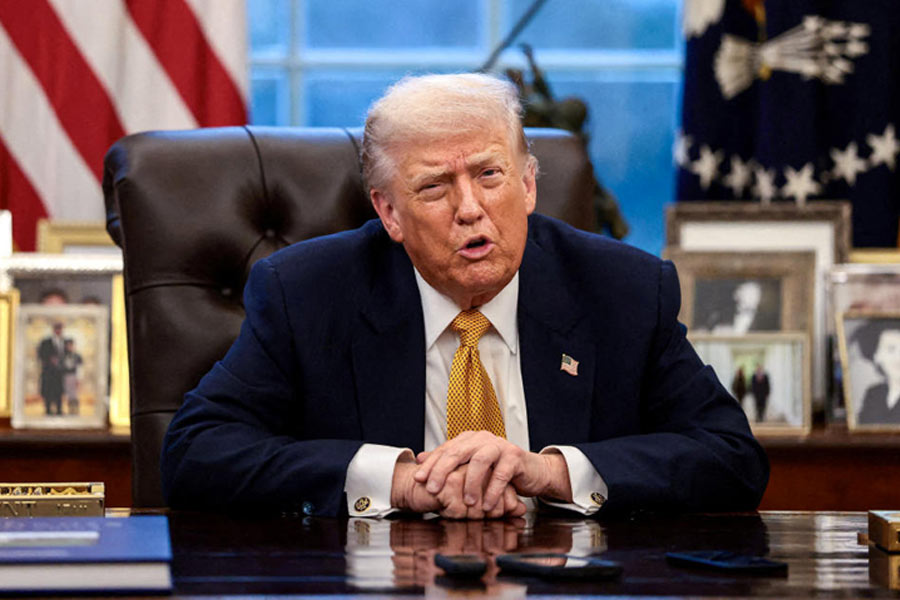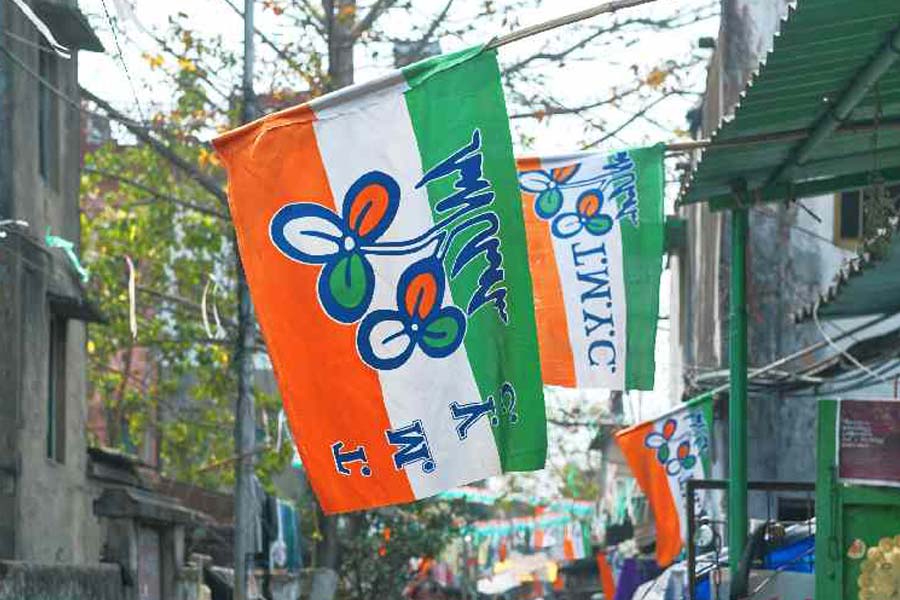|
|
A datum is a datum; India exists as a country, it is a founder-member of the United Nations, has diplomatic relations with a hundred-odd countries and has just received formal recognition as a non-rogue nuclear power. But is there, really and truly, an Indian nation? Why not take a look around?
The river Kosi breaches its embankment and inundates half of Bihar, causing innumerable deaths and indescribable suffering. For the rest of the country, the cataclysm is only a television event. The chairperson of the United Progressive Alliance, accompanied by her prime minister and some of his cabinet colleagues, surveys the affected terrains from an air force plane; that is a news item. Relief materials, including food, are dropped from helicopters to the marooned people who fight like wild animals to grab them: it is another curiosum to schoolchildren glued to the TV sets in the rest of the country, nothing beyond.
Move east to West Bengal. The cynosure is Singur. Tension, tension; in this situation, please do not pester the local populace by alluding to developments elsewhere, such as in neighbouring Bihar. Or consider Orissa, with its cauldron of inter-religious and inter-caste savagery, a grim, lurid two-in-one. At this moment, that is the only universe for the Oriyas, everything else is blanked out. In Andhra Pradesh, close to a million people gather to watch the pyrotechnics set in motion by a film star which is at present the only topic of conversation: darn it, this is no occasion to worry over affairs of the world or in the rest of the country. In Tamil Nadu, the dramatis personae have not changed over the years; they continue to fight it out, single-mindedly, over the legacy of MGR which claimed all attention, the scuffle over Sethu Samudram providing a minor divertissement.
Cross over to Maharashtra. Presided over by the Shiv Sena, Mumbai remains a lawless jungle. The mother of all issues is reaching a decision on the exact height of the statue of Chhatrapati Shivaji to be installed in the Arabian Sea at the point of its utmost depth. Gujarat is, for ever, undisputed Narendra Modi land, no distractions are to be permitted, it has to be Ram Rajya here and now — the single item on the agenda, whoever dares to demur is a terrorist and deserves to be taken care of by a refurbished Prevention of Terrorism Act. If, seeking relief, you stray into Chhattisgarh, stifle your breath, it is a relentless stretch of dark killings and counter-killings; what all this is about does not interest the rest of the country.
Have you got trapped in Uttar Pradesh? First things first, caste is uber alles. The country’s next prime minister, you better concede, has to be Behenji, no other concern is going to intrude into the proceedings: all and sundry — college teachers, civil servants, policemen and pranksters including — are concentrating on the permutations of caste alignments which could further, or hinder, the prospects.
Given the circumstances, can it be very different in Assam, the state of which the incumbent prime minister is the native son? Yes, it can be. The ordinary residents over here have learnt to take a dim view of India, the country they formally belong to, ever since the Indian army left them in the lurch in 1962; India’s problems, thank you, are not theirs. The rest of the Seven Sisters could not agree more. If you have doubts, check with someone from Manipur: on top of the outrageousness of the Armed Services (Special Powers) Act, there is now the episode of Monika Devi, allegedly shut off from the Beijing Olympics by perfidious Indians infesting the sports bodies.
Finally, Kashmir. Much effort has gone in to create the impression that Kashmir is much more than a colonial annexation, but with meagre success. New Delhi has spent maybe plus-minus Rs 600,000 crore over the past six decades to guard and secure this prized possession. That does not necessarily render the valley into an inalienable part of India. The use of the terms ‘alienation’ and ‘non-alienation’ in this context has nothing to do with the concept of shared or non-shared feelings and emotions. Kashmir is taken to be non-alienable in the sense an empire considers a conquered territory as non-alienable, something to hold on to for keeps. A kind of sullen, uneasy equilibrium was nonetheless reached in the valley in the earlier years of the present decade: militant activity had abated, infiltration across the line of control went down too. All that has now been put to nought by the grossly inept handling of the Amarnath yatra issue. The valley has been under the occupation of army and para-military forces for years on end. Even so, it could have been claimed circa 2000 that, in the improbable event of a referendum or a plebiscite, at least two to three per cent of the valley people might have been persuaded to opt for a continuation of the link with New Delhi. Such calculations have gone awry in the wake of the mess of recent weeks. Conceivably not even a handful would now dare to proclaim openly their desire to co-habit with India. Both the National Conference and the People’s Democratic Party are left without a constituency. Even worse, it is no longer possible to distinguish a ‘moderate’ Hurriyat acolyte from an ‘extremist’ one; New Delhi’s wizardry has managed to bring them together.
The ego factor nevertheless refuses to take the bow. No question there is a vague stirring of an imperial dream the moment Kashmir is mentioned to the average Indian citizen. In town and country, people are engaged in their daily pursuits. The valley does not normally occur in the matrix of their thoughts. They are not the least concerned whether Kashmiris live or die. Should the country be bereft of Kashmir, nothing will in fact change in their pattern of existence. On the contrary, once the drain from the national exchequer on account of Kashmir comes to a halt, extra funds could actually become available to meet the challenge of poverty, malnutrition and illiteracy all over the country. Such logic, however, is to be despatched to the back-burner. The Bihar floods do not disturb the tranquillity in the mind of compatriots; the prospect of having to live without Kashmir does.
Besides, pundits, holding their peace till now, will no longer do so. The Indian Constitution, they will sternly warn, does not permit secessionary talk. The valley cannot be abandoned for other weighty considerations as well. If Kashmir goes, the Purana-chanting religious fundamentalists would cause mayhem and sweep the Hindu vote; that is too horrid a possibility to contemplate. Prim secularists will proffer a further argument. If Kashmir goes, close to 160 million citizens of the country belonging to the Islamic community would be sitting ducks for communal bigots; the people in the valley must take cognizance of that peril before they allow blood to rush to their heads. Kashmiris may have solemn reasons for getting into a frame of mind antagonistic to the Union of India, they may in fact feel totally alienated from India, but, please, they must not behave irresponsibly. If they choose to part from India, Indian Muslims are bound to be made answerable for that denouement. The Kashmiris must therefore be satisfied with the status quo and accept their martyrdom with calm and quiet.
Segmented minds, segmented attitudes. The sum of these attitudes passes as the republic of India. It is a country, but, sorry, shed the blinkers, it is no nation, only an awkward slapping together of competing ego-centrisms.











